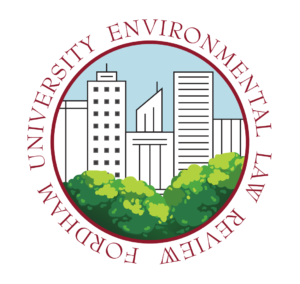INDIA’S DRAFT EIA NOTIFICATION 2020 ERODES ENVIRONMENTAL JUSTICE

by Filzah Belal, final year law student pursuing B. A. LLB (Hons.) at National Law University and Judicial Academy, Assam. and Yashasvi Jain, Law Clerk to Justice U.U. Lalit, Judge, Supreme Court of India
The Draft Environment Impact Assessment (EIA) Notification, 2020 (‘2020 Notification’) is an example of diminished standard in environmental law. It reduces the window of public hearing from 30 days to 20 days, diluting the ability of the public to participate. This impedes the EIA ability to achieve environmental democracy.
Additionally, the 2020 Notification exempts ‘strategic projects’ from public hearing. Projects are categorized as strategic by the Central Government on a case to case basis giving the government control over protecting certain projects. Its likely that private business entities will exploit resources without any checks posing risks to the local neighbourhood communities.
The erosion of public hearing and the failure to practice a strict EIA process has caused the loss of shelter for indigenous people as a consequence in Baghjan Oil Leak. Despite India being a signatory to the UN Declaration of Rights of Indigenous People, which recognises the Right to Land to Indigenous people and protects them from being forcibly removed from their lands without a free, prior and informed consent, in India indigenous people are losing their protections.
Most egregiously, the Ministry of Environment allotted only 10 minutes to video call meetings for each proposal. This is scarcely sufficient to examine a project against its environmental impact.
The draft 2020 Notification allows post facto approvals, implying the liberty to function without employing any precautions towards environmental damage, which is otherwise a sine qua non for providing environmental clearance. The Supreme Court of India has previously found such approvals to be violative of the precautionary principle and sustainable development.
In the Vizag gas leak, an industrial plant in Vizag manufacturing a lethal gas, was found to be working without an environmental clearance. In the Singareni coal blast the company hired untrained staff to save costs. The government has turned a blind eye to the callous attitude of the private entities: an approach that gains legitimacy if the 2020 Notifications passes.
The government’s goal to achieve $5 trillion economy by 2024 by “Grow Now, Sustain Later” incentivizes the government to eliminate restrictions like the EIA process. This improves the ease of doing business ranking for the country but at the cost of environment protection regulations in India.
The 2020 Notification poses an unprecedented harm to environmental injustice. It will lead to the violation of rights of local communities and the larger body of citizens by violating their right to environment. The lack of accountability is of particular concern. It must be opposed at all cost to prevent violations of the basic principle of environmental protection and to uphold the cornerstones of environmental justice in India.

